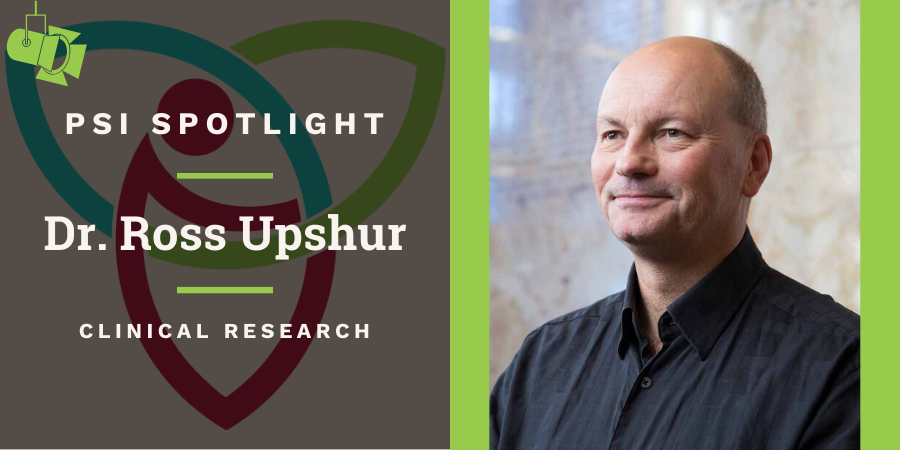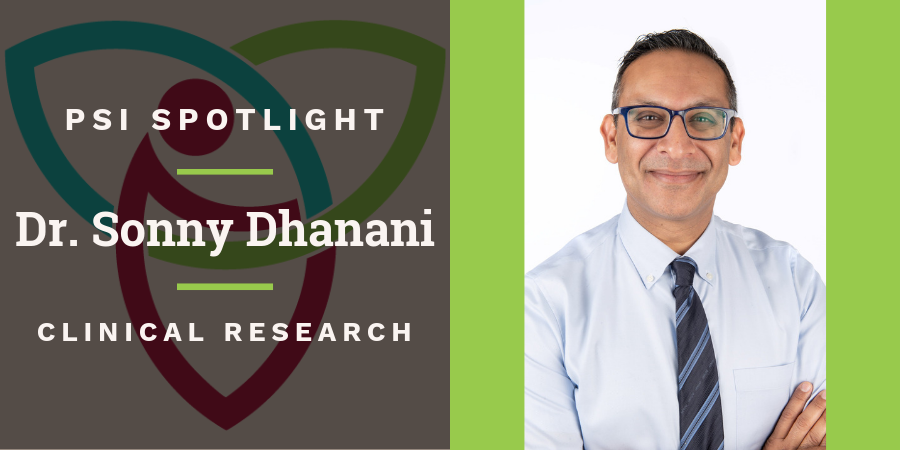Research from a PSI Foundation–funded team has led to the development of a first-of-its-kind assessment of seniors’ biomedical and social vulnerability. The Frailty and Vulnerability Evaluation (FAVE) tool, developed by Dr. Ross Upshur and his team at Bridgepoint Active Healthcare and the Department of Family and Community Medicine in Toronto with funding from PSI Foundation, is a step towards higher quality care for seniors.
Dr. Upshur’s career has largely been focused on senior care, starting with electives as an undergraduate in medical school, followed by several years as a primary care physician in a rural area with a large senior population. In recent years of his research career, he and his team have been interested in developing tools to help physicians in family practice manage the complex health care needs of seniors.
They identified that while certain aspects of seniors’ health were becoming better understood, there was still a significant gap – social isolation. “There’s growing interest and recognition from the health system around frailty,” says Dr. Upshur. “Frailty is important, but not the whole story.” Yet, no clinical tools in primary care looked at both frailty and social vulnerability, so he and his team, with input from an expert advisory committee, developed one.
The new tool, FAVE, asks seniors about their health and functional abilities, but importantly, also asks about their social wellbeing, including their loneliness, living arrangements, feeling of safety and economic insecurity. “People are now talking about loneliness and isolation as an issue,” says Dr. Upshur. “A primary care physician might notice that a patient might have issues with loneliness and vulnerability, but collecting this information has not been systematic.”
With funding from PSI Foundation, the team validated FAVE and compared the performance to existing measures, such as the frailty score and physician judgment, to determine if it is a reliable predictor of an individual’s health and wellbeing.
More than 260 patients from 10 Family Health Teams from urban, suburban and rural practices completed the tool. Seniors completed the FAVE assessment on paper or electronically prior to an appointment with their family physician. The team also asked the family physician for an assessment of the individual’s frailty and wellbeing, blinded from the patient’s score on the tool.
They found that patients thought the survey was user friendly, and importantly, that FAVE scores correlated well with seniors’ self-reported health, as well as physician assessments and frailty scores.
To understand whether FAVE is a good predictor of an individual’s future health, the team is now looking at patients’ charts one year after they complete the tool, particularly to examine the patient’s total number of health care transitions (such as being admitted to the emergency department, long-term care or a return home), and the total number of days spent at home. The analysis is currently underway but will help determine whether FAVE, physician judgment, the frailty score, or a combination is the best predictor of a patient’s future health care transitions.
Dr. Upshur notes that PSI Foundation plays an important role in this type of research. “It can be difficult to get funding for small-scale projects that engage local partners, but PSI Foundation is a strong supporter of this type of research,” says Dr. Upshur. “They focus on research that is meaningful to clinical practice.”
As Ontario includes an already large and growing population of seniors, Dr. Upshur hopes that FAVE will help primary care physicians care for both the health and social needs of seniors. “The tool is just one component of a systematic approach for seniors in the community by primary care physicians,” he says. “It’s an important step towards more comprehensive, appropriate, compassionate and high quality care for seniors.”



